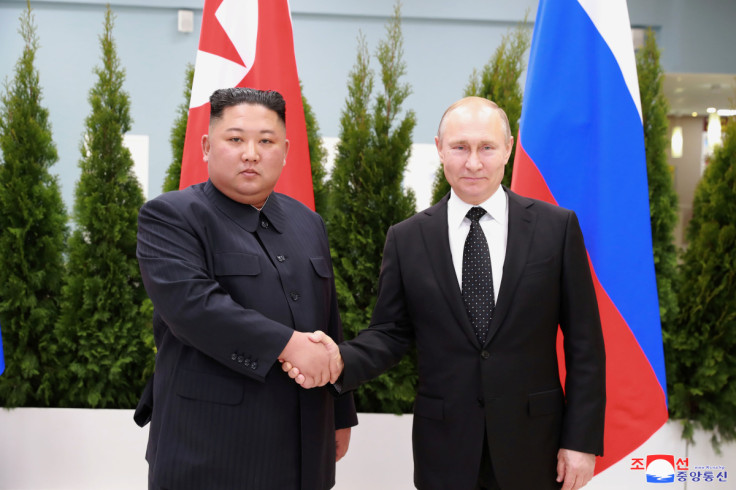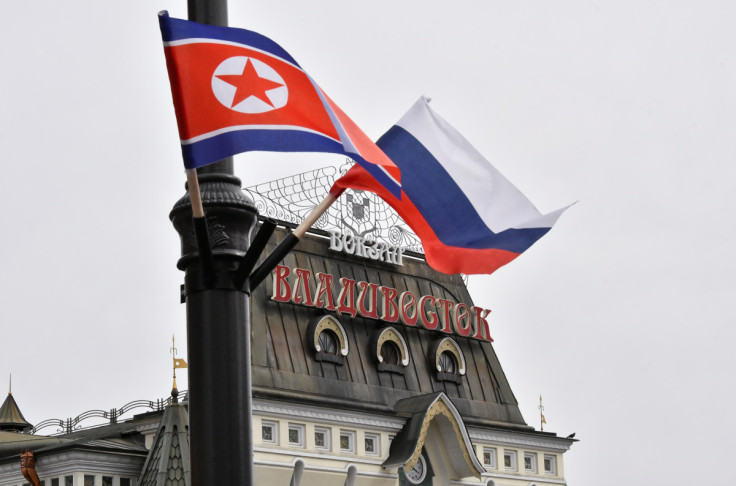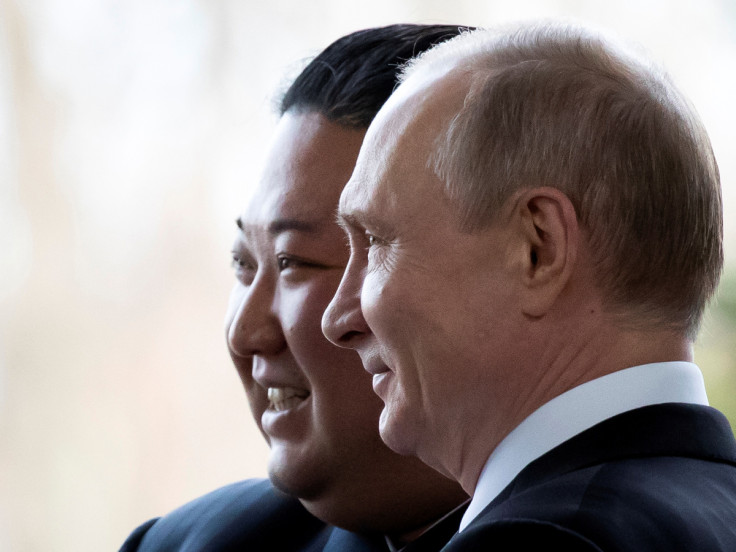Explainer-Putin And North Korea's Kim Forge Closer Ties Amid Shared Isolation

North Korean leader Kim Jong Un sent a birthday greeting to Russian President Vladimir Putin this week, congratulating him for "crushing the challenges and threats of the United States", the latest sign of deepening ties between the two pariah states.
As Russia's isolation over its war in Ukraine has increased, it has seen increasing value in North Korea. For North Korea's part, relations with Russia haven't always been as warm as they were during the heady days of the Soviet Union, but now the country is reaping clear benefits from Moscow's need for friends.
Here's how North Korea-Russia relations began, and how they are becoming closer:
POLITICAL BACKING
Communist North Korea was formed in the early days of the Cold War with the backing of the Soviet Union. North Korea later battled the South and its U.S. and United Nations allies to a stalemate in the 1950-1953 Korean War with extensive aid from China and the Soviet Union.
North Korea was heavily reliant on Soviet aid for decades, and when the Soviet Union collapsed in the 1990s it helped spark a deadly famine in the North.
Pyongyang's leaders have tended to use Beijing and Moscow to balance each other. Kim Jong Un initially had a relatively cold relationship with both countries, which both joined the United States in imposing strict sanctions on North Korea over its nuclear tests.
But after his country's last nuclear test in 2017, Kim took steps to repair ties.
In 2019 Kim and Putin met for the first time in a summit in the Russian city of Vladivostok.
Since then, Russia has joined China in opposing new sanctions, vetoing a U.S.-led push in May and publicly splitting the U.N. Security Council (UNSC) for the first time since it started punishing Pyongyang in 2006.
UKRAINE WAR SUPPORT
North Korea has reciprocated with public support for Moscow after Russia invaded Ukraine. It was one of the only countries to recognise the independence of breakaway Ukrainian regions, and this week it expressed support for Russia's proclaimed annexation of parts of Ukraine.
"Moscow's 'special military operation' in Ukraine has ushered in a new geopolitical reality in which the Kremlin and (North Korea) may become increasingly close, perhaps even to the point of resurrecting the quasi-alliance relationship that had existed during the Cold War," Artyom Lukin, a professor at Far Eastern Federal University in Vladivostok, wrote in a recent report for 38 North.
It is notable that Pyongyang has begun using the new phrase "tactical and strategic collaboration" to describe its relationship with Russia, he added.
The United States has said that Russia approached North Korea about buying millions of rounds of ammunition and other weapons to refill its stockpile depleted by the war. Both Russia and North Korea have denied that claim.
ECONOMIC TIES
The vast majority of North Korea's trade goes through China, but Russia is a potentially important partner as well, particularly for providing oil, experts said. Moscow has denied breaking U.N. sanctions, but Russian tankers have been accused of helping evade caps on exporting oil to North Korea and sanctions monitors have reported that labourers remained in Russia despite the ban.
Trade and human contact between the two countries came to a nearly complete halt after the pandemic began and North Korea imposed strict border lockdowns, at one point forcing Russian diplomats to push themselves and their baggage on a rail handcart to return home.
"There are reasons to believe at least some of the border restrictions on the North Korean side will start to be lifted soon," Lukin said, citing local government reports that train trade could soon be allowed.
Russian officials have openly discussed "working on political arrangements" to employ 20,000 to 50,000 North Korean labours, despite U.N. Security Council resolutions that ban such arrangements.
Russian officials and leaders in the breakaway regions in Ukraine have also discussed the possibility of having North Korean workers help rebuild those war-torn areas.


© Copyright Thomson Reuters {{Year}}. All rights reserved.





















